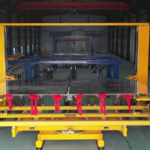University researchers in the UK face significant challenges when it comes to taking action against climate change, despite their desire to do so. Many academics are concerned about climate change but encounter various barriers to changing their habits, such as the pressure to travel. For example, a climate researcher conducting fieldwork overseas wanted to use more sustainable forms of transport instead of flying back to their research institute in Germany, but they were ultimately fired for this decision.
Universities, as large institutions and centers of knowledge, have a crucial role to play in addressing climate change. Their education and research have a significant impact on society, but they also contribute to the country’s carbon footprint, representing 2.3% of the UK’s carbon emissions.
Researchers have the potential to take collective action that can help universities tackle climate change. However, until recently, there has been little focus on how the culture and practices of universities either enable or hinder this change.
To shed light on this issue, a survey was conducted among almost 2,000 early, mid-, and senior career researchers from 127 UK universities. The respondents represented a mix of disciplines, providing a comprehensive overview of the higher education sector in the UK. The results of the survey were eye-opening.
Nearly all researchers (95%) expressed extreme, very, or some level of concern about climate change. Similarly, 96% of researchers expressed a desire to do more about the issue within their universities, even beyond their professional roles. However, they face obstacles such as high workloads, uncertainty about what they can do, and a lack of agency or power to take action.
The majority of researchers believe that their universities do not provide enough information on conducting research in a sustainable way. They also highlighted that funding processes, including grant applications for research, do not incentivize low-carbon approaches. This lack of support and encouragement from universities hinders their ability to address climate change effectively.
Interestingly, while researchers expressed a high level of support for their peers advocating for university action on climate change (98%), there was uncertainty about their colleagues’ actual thoughts and actions on the matter. Almost half of the researchers surveyed were unsure if their colleagues considered climate action a priority, knew how to address climate change, or were willing to do so.
These findings are particularly significant because most of the researchers surveyed (65%) do not specialize in climate change research or teaching. It demonstrates that the importance of climate action is recognized across various disciplines, not just among climate scientists.
The survey also revealed that barriers to taking action differ based on the researchers’ disciplines and career stages. Climate researchers are more likely to feel they know how to address the problem and see their work as part of the solution compared to non-climate researchers. Additionally, researchers in medicine, health, and life sciences perceive their subject area as less relevant for addressing climate change, despite clear connections between health and climate change issues.
Different career stages also present unique challenges. Early career researchers, in particular, lack institutional support, are involved in fewer climate




